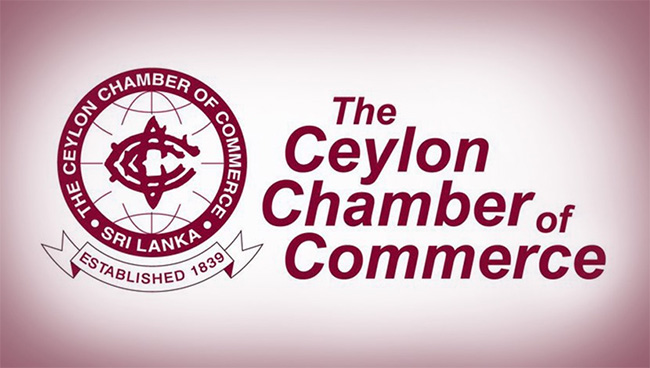CCC hails 2025 Budget’s ‘bold proposals’, commends govt for avoiding ad-hoc tax measures
February 18, 2025 06:13 pm
The Ceylon Chamber of Commerce (CCC) has welcomed the “bold proposals” in the 2025 Budget, which it says align with its recommendations, Sri Lanka Economic Summit discussions, and Vision 2030 goals.
The 2025 Budget focuses on stability, governance, public relief, tackling corruption, and driving inclusive growth, the Chamber said, adding that the Budget emphasises infrastructure expansion through Public-Private Partnerships (PPPs) and digital economy initiatives, providing a strong foundation for transformation.
The Chamber said it appreciates the Government’s recognition of the need to reform the Customs Ordinance and the implementation of the National Single Window, both crucial for enhancing trade facilitation and improving the ease of doing business.
“We also acknowledge the planned implementation of the Economic Transformation Act with amendments and the introduction of legislation on Public-Private Partnerships (PPPs).”
Issuing a statement, the CCC said the timely execution of these reforms will create a more conducive environment for private sector investment in key sectors such as ports, tourism, and infrastructure, as highlighted in the budget speech.
The Chamber commended the Government for maintaining policy consistency by retaining the existing tax framework and avoiding ad-hoc tax measures to match the expenditure proposals.
It said that adhering to the Public Financial Management Act, which caps primary expenditure at 13% of GDP, is a positive step toward rebuilding investor confidence and strengthening Sri Lanka’s global credit standing. “Ensuring tax stability during the year and simplifying compliance will be crucial for fostering a competitive business environment.”
The Chamber further said that the above-mentioned bold reforms require time-bound implementation to translate the Budget’s vision into a reality that will be felt by the public.
For example, projects like the National Single Window which has been a request from the private sector for over two decades require commitment by the Government on the implementation plan, it said.
The Chamber also welcomed the plan to establish a holding company for SOEs, aligning with global best practices to improve governance, financial discipline, and efficiency. “Its success will depend on clear timelines, independent oversight, and transparency.”
The focus on digitalisation and e-governance is also a positive step, with initiatives like the Unique Digital ID and the setup of an Apex Digital Economy Authority to reduce bureaucracy and enhance transparency, the statement said.
The Ceylon Chamber of Commerce’s statement further reads:
“The transition from the current SVAT system to a risk-based refund system requires careful execution, including stress-tested pilot programmes to ensure a robust and efficient refund process. The changes to the minimum wage for private sector should be carried out in a consultative process and align with business sustainability and broader labour reforms that advocate for higher women’s economic participation and flexible work.
The budget prioritises investment-driven growth but needs stronger support for MSMEs, vital for jobs and resilience. While Rs. 254 billion is allocated for agriculture, a clear strategy for modernisation, value chains, and climate resilience, is crucial. Policies on sustainable farming, irrigation, and private-sector agro-processing, must be strengthened to counter climate change impacts.
The Government’s emphasis on investment-led growth, trade, digital transformation, and public sector reform, align with the Ceylon Chamber’s recommendations. While the 2025 budget effectively addresses fiscal consolidation, investment facilitation, and governance, its success depends on efficient time-bound implementation, policy stability, and stakeholder collaboration. The Chamber remains committed to working with the Government to refine and execute these policies, ensuring a resilient, inclusive, and globally competitive economy.”












